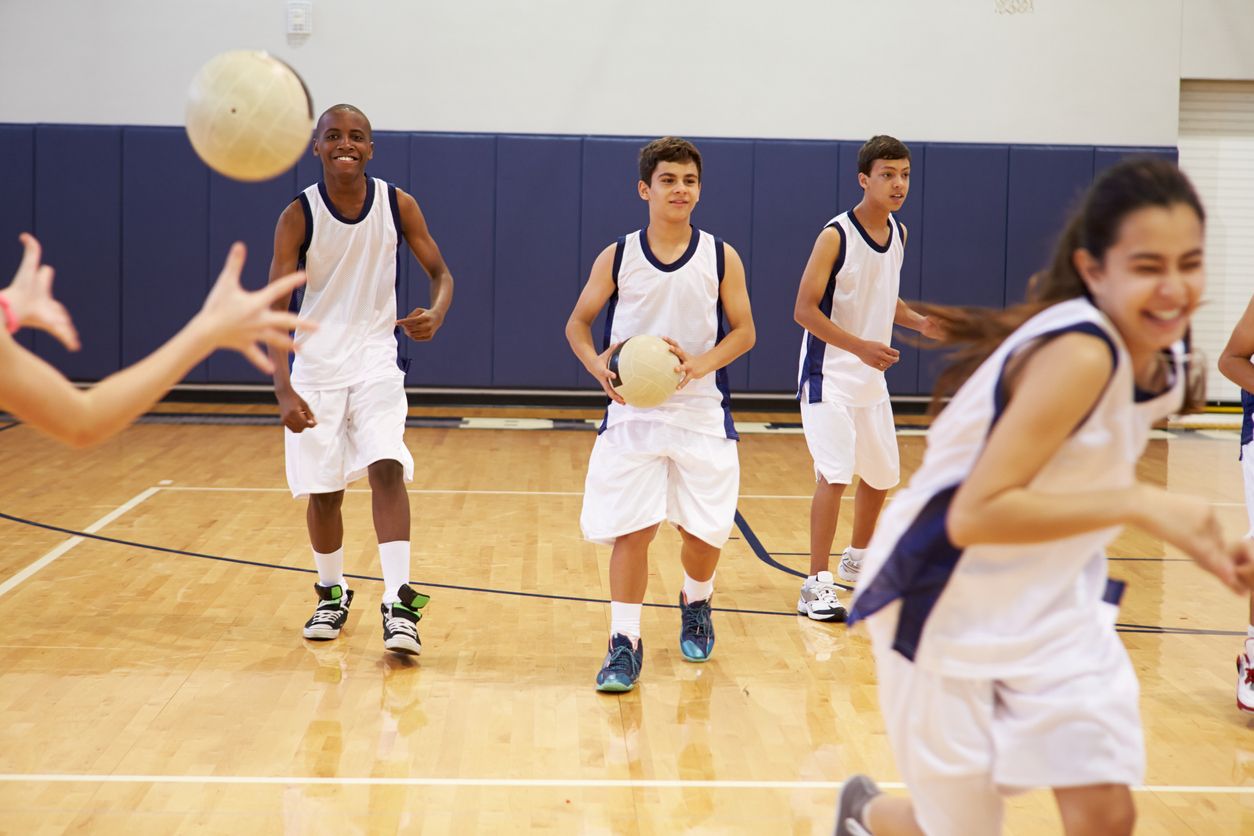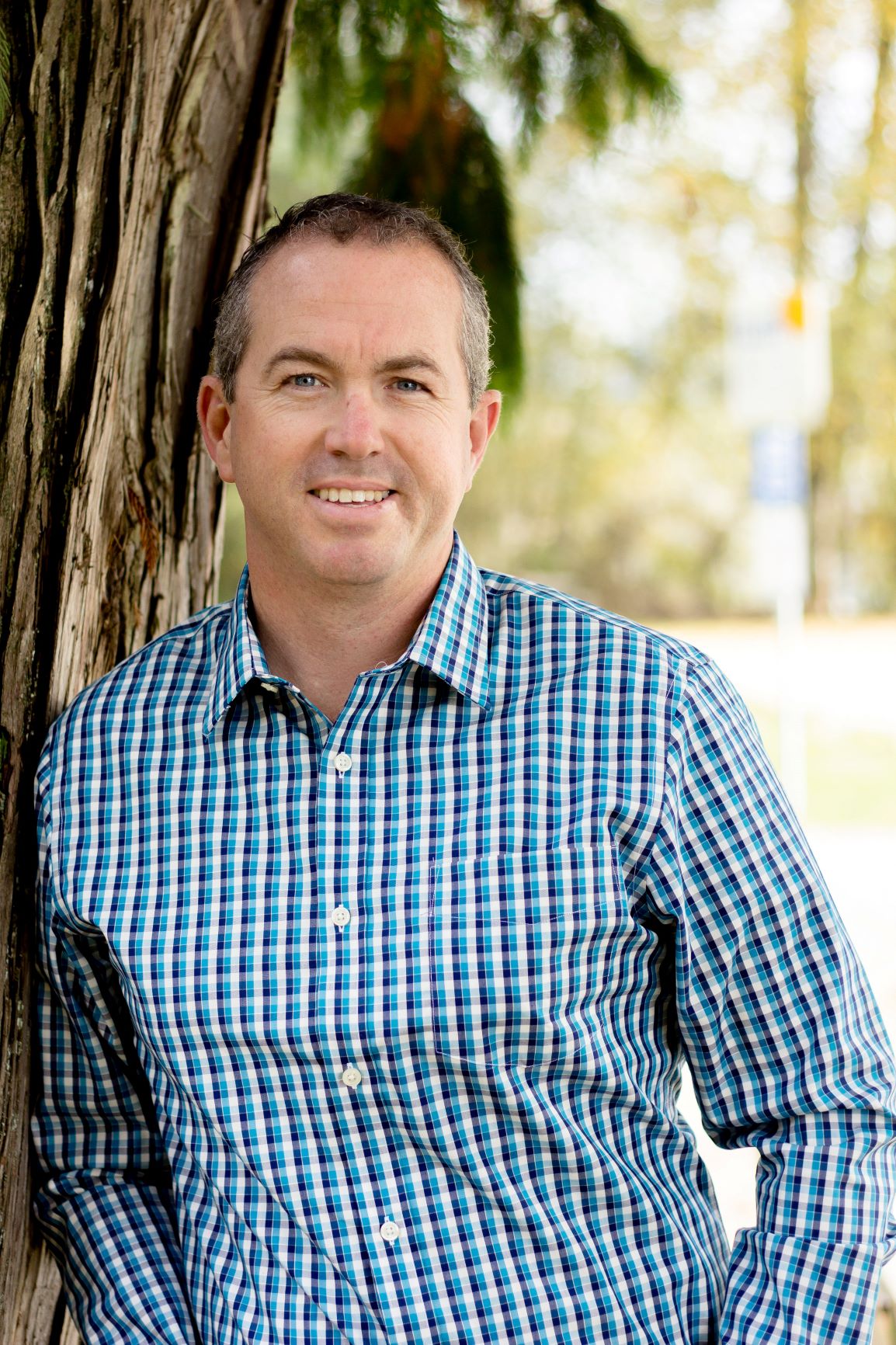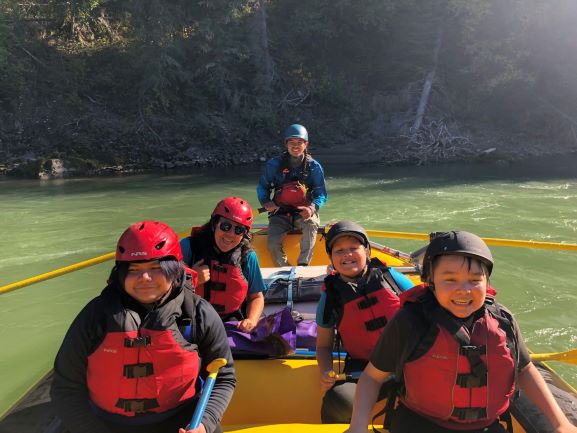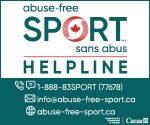School Physical Activity and Physical Literacy Project hosts summer institute for teachers
 When it comes to developing physical literacy in the classroom, it’s important to stay humble and to identify your allies — or at least that was the takeaway for Adam Knowlson, an outdoor education teacher for the Langley School District who participated in the School Physical Activity and Physical Literacy Project’s Summer Institute this past July.
When it comes to developing physical literacy in the classroom, it’s important to stay humble and to identify your allies — or at least that was the takeaway for Adam Knowlson, an outdoor education teacher for the Langley School District who participated in the School Physical Activity and Physical Literacy Project’s Summer Institute this past July.
“The summer institute was a really positive experience for me. I went in knowing that I already believe in the concept of physical literacy but I struggle with finding ways to incorporate it into my instruction in an inclusive way and I wanted to develop my practice,” Knowlson told Sport for Life. He was one of 24 B.C. teachers and teacher candidates to participate in the five-day intensive.
“It was foundation-shaking on a philosophical level. After the completion of the course, I really chewed on the experience for the next few weeks and I became much more obsessed with the material in a way I didn’t anticipate, all these snapshots of expertise from experts in the field of physical and health literacy. It’s going to have a huge impact on the way I teach.”
Knowlson acknowledges that many teachers don’t devote as much time to physical education as subjects such as english and math, because it often doesn’t get prioritized with the same level of investment by the traditional system. As the burgeoning physical literacy movement becomes increasingly embedded into Canada’s cultural consciousness through endeavours like the School Physical Activity and Physical Literacy Project, he believes we’ll see small changes and then larger changes to how B.C. students move during the school day.
“Rather than trying to tackle reformation of the whole physical literacy education system on your own, thinking you’re the only person driving practices to improve, I think it’s better to find your allies and people who believe the same things who will work with you to collaborate on improvements. That shift will happen over time. And you have to be patient and gracious with yourself if your instruction isn’t at the level you want it to be at yet.”
‘We’re watering these seeds’
If things had gone as initially planned, the first summer institute offered as part of the

Steve McGinley
School Physical Activity and Physical Literacy Project would have taken place in-person at UBC over the course of five days. Summer institute lead instructor Steve McGinley already had a big organizing task on his hands before the pandemic hit, and it only got bigger once the core management team realized everything would have to be adapted to work over webcam.
“This was a once in a lifetime opportunity where we had all this money being invested into education for important ground-breaking work, so we knew we had to take advantage of that regardless of the circumstance,” said McGinley, who is a member of the executive at PHE Canada.
“Our end goal was to meet the overall objectives of the project: we wanted to increase the competence and confidence of elementary school teachers to deliver the PHE curriculum in B.C. and increase the number of minutes in the school day that students are engaged in physical literacy. That was the vision.”
They were able to bring together seven leaders in the field of physical and health education to teach the institute participants, all who are either current or aspiring teachers in the school system. The guest speakers were also present throughout the course, interacting with students as they worked through a series of modules. That culminated in a capstone project where each student articulated what they learned.
“It was a beautiful celebration and it was evident that the students found the institute a success. Their capstone projects spoke to fundamental questions such as: who am I as a developing professional? Where do I come from? What are my educational commitments? And how will I continue to grow professionally?”
At the big picture level, what the School Physical Activity and Physical Literacy Project is trying to accomplish is fundamental culture change — no small task. But when McGinley reflects on what they accomplished over the course of a few days, he figures the long-term impact will be exponential. He’s already making plans to do a longitudinal study of the institute to see how it can improve.
“This is an opportunity for educators to push their practice, and it’s a lifelong journey of learning. This was only the first summer institute, using this multi-sectoral approach of key stakeholders coming together. It’s going to take time, but we’re watering these seeds as we go and we’ll see fruit in due time.”
Honouring Indigenous perspectives
Kathleen Morin is a physical educator and school principal from Witset First Nation, a community near Smithers. She first graduated with her teaching certificate from UBC in 1998, but signed up for the summer institute as an opportunity to further her education as she works towards a Master’s in Educational Leadership degree.
“It was a real challenge for me. It was a lot of work. I haven’t been in university since I finished my degree, so I chose the summer institute to see if I could handle a real course and do university again,” she said.

Kathleen Morin’s class during an outdoor education experience.
“It transformed my programming, so that now when I’m doing physical education with the students I’m focused on trying to create activities where more kids are engaging, and having fun. It made me aware of my game choices, and to choose ones that are more inclusive. As an Indigenous educator, I consider being outside and learning outside to be very valuable for teaching kids, and the summer institute further solidified that value of mine.”
Morin said attitudes towards the importance of physical literacy have shifted significantly since she was last a student, and she appreciates that it’s now being elevated in importance to the level of reading and math. She was especially grateful for the segment of the program devoted to Indigenous perspectives.
“To be with a group of educators talking collaboratively about Indigenous education and learning on the land, I really got the sense from everybody they all had open minds and open hearts. I never once felt on those Zoom calls that they weren’t open to learning from First Nations in British Columbia, which felt very empowering for me.”
The expert presenters made a big impact on Morin, and drove home in greater detail how the lack of physical literacy opportunities for young students can lead to sedentary and unhealthy lifestyle choices — something she’s concerned about in her own community. She plans to take what she learned from the summer institute and share it with the other educators in her community.
“Kids are not being active enough and it’s negatively affecting their health, so we need to really appreciate the crisis that we’re in and work together to change.”
Blogging about physical literacy
One of the participants in the summer institute was Darryl Beck, a teacher-librarian from Vernon. When it came time to decide on a form for his capstone project, he decided to capture the experience with his blog, sharing compelling graphics and insights while detailing his takeaway lessons.
“The time we were given to present wasn’t enough to share all we learned over such a short period of time, so I wanted my capstone project to be a celebration of learning with a little video that showed how fast things went by, with key words and lessons from each module we went through,” he said.
Beck has already made plans to share his learning with his fellow teachers in Vernon, proposing a Pro-D Day focused on physical literacy to his administration. He said it’s something they have to be particularly proactive about during pandemic, while they’re adjusting to new protocols and limitations. He plans to incorporate much more outdoor education into his class.
“I talked to my principal, explaining that this was part of a larger initiative for physical education in B.C., and said at some point in time we’re all going to come in contact with this. We’re off to a good start with things like a physical literacy track in the hallway, but let’s bring the rest of our staff together on this because we have the opportunity to create a culture change.”
More summer institutes are currently being planned, with the next one slated for summer 2021. Information on whether it will be offered in-person or remotely will be released next year.

